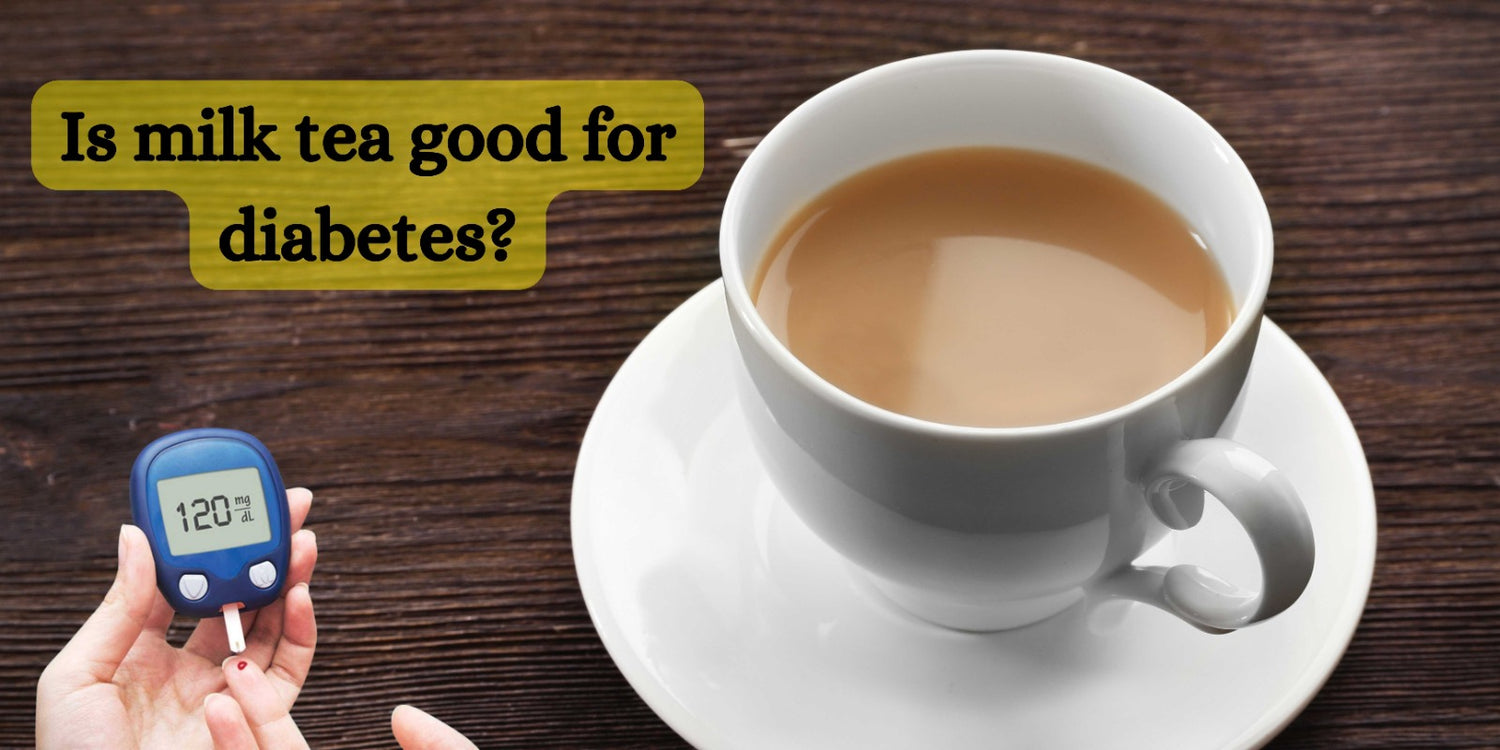In the world of beverages, few concoctions are as beloved and versatile as milk tea. The perfect blend of creaminess and tea aroma has made milk tea a global sensation. However, for individuals managing diabetes, the question arises - is milk tea a safe choice? In this blog post, we delve into the possible implications of consuming milk tea for those with diabetes.
Understanding Diabetes:
Diabetes occurs when the body either fails to produce sufficient insulin or becomes resistant to its effects, resulting in elevated blood sugar levels.This leads to a dangerous buildup of glucose in the blood, necessitating careful management. For individuals with diabetes, maintaining stable blood sugar levels is crucial to prevent complications and lead a healthy life.
The Ingredients of Milk Tea:
Milk tea is made with tea, milk, and sweetener. The type of tea used can vary, with popular choices being black tea, green tea, or herbal teas. Milk provides creaminess and added flavor, while sweeteners like sugar or honey enhance the taste. For individuals with diabetes, each component of milk tea can have implications on blood sugar levels.
Effects of Tea on Blood Sugar:
Tea itself is a healthy beverage with potential benefits for individuals with diabetes. Research suggests that certain compounds in tea, such as polyphenols and catechins, may help improve insulin sensitivity and regulate blood sugar levels. Green tea's antioxidant-rich profile has garnered attention for its potential in diabetes management. The specific benefits of tea can vary depending on the tea type and how it's prepared.
The Role of Milk and Sweeteners:
While tea may offer benefits, it is the milk and sweeteners in milk tea that can pose challenges for individuals with diabetes. Milk contains lactose, a type of sugar that can impact blood sugar levels. Additionally, many commercial milk teas are laden with added sugars, which can cause rapid spikes in blood glucose levels. For individuals with diabetes, monitoring the amount of sugar and carbohydrates in their beverages is crucial to prevent fluctuations in blood sugar.
Making Healthier Choices:
For those with diabetes who enjoy milk tea, there are ways to make it a more diabetes-friendly option. Opting for unsweetened or lightly sweetened varieties can help reduce the sugar content. Swapping regular milk for non-dairy alternatives like almond milk or coconut milk can also lower the carbohydrate content. Experimenting with herbal teas or green tea blends can provide additional health benefits without compromising on taste.
Consulting with a Healthcare Provider:
Ultimately, the impact of milk tea on blood sugar levels can vary from person to person. Consult a healthcare professional or registered dietitian to optimize beverage choices for individuals with diabetes. Monitoring blood sugar levels before and after consuming milk tea can also provide valuable insights into its effects on personal health.
Conclusion:
In conclusion, the question of whether milk tea is good for diabetes is not straightforward. While tea itself may offer some potential benefits, the addition of milk and sweeteners can complicate its impact on blood sugar levels. For individuals with diabetes, moderation and mindful choices are key when it comes to enjoying milk tea. By making informed decisions and monitoring their health, individuals with diabetes can still savor the delights of milk tea while prioritizing their well-being.
Remember, it's not just about what you drink, but how you drink it that matters when it comes to managing diabetes and maintaining a healthy lifestyle.




